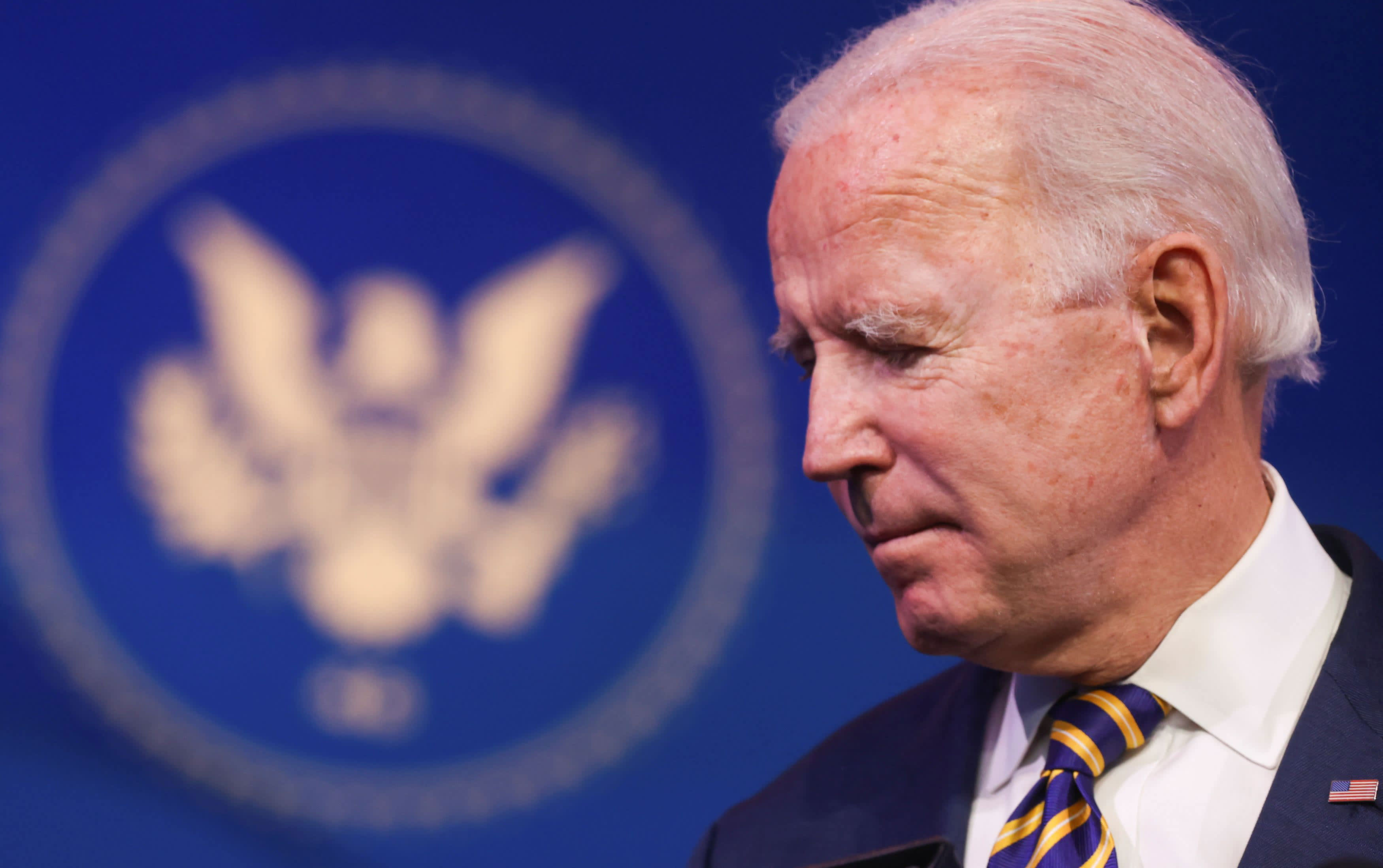U.S. President-elect Joe Biden attends a briefing to deliver remarks on the U.S. response to the coronavirus disease (COVID-19) outbreak, at his transition headquarters in Wilmington, Delaware, December 29, 2020.
Jonathan Ernst | Reuters
WASHINGTON – President Joe Biden said the United States will not offer sanctions relief as a way to entice Iran back to the negotiating table over the country’s nuclear program.
Biden, in an interview with CBS, indicated that Iran would have to stop enriching uranium before his administration would lift sanctions. The interview airs in full Sunday evening.
When asked if the U.S. would lift sanctions to get Iran back to the negotiating table, Biden said “no.”
Tensions between Washington and Tehran have mounted following former President Donald Trump’s withdrawal from the landmark nuclear agreement.
The 2015 Joint Comprehensive Plan of Action, brokered by the Obama administration, lifted sanctions on Iran that had crippled its economy and cut its oil exports roughly in half. In exchange for sanctions relief, Iran accepted limits on its nuclear program until the terms expire in 2025.
The U.S. and its European allies believe Iran has ambitions to develop a nuclear bomb. Tehran has denied that allegation.
Trump withdrew the United States from the JCPOA in 2018, calling it the “worst deal ever”
Following Washington’s exit from the landmark nuclear deal, other signatories of the pact — France, Germany, the U.K., Russia and China — tried to keep the agreement alive.
Tehran has refused to negotiate while U.S. sanctions remain in place.
Iran’s Supreme Leader Ayatollah Ali Khamenei reiterated on Sunday that Tehran would only return to compliance with the 2015 nuclear deal when Washington lifts sanctions, Iranian state TV reported.
“Iran has fulfilled all its obligations under the deal, not the United States and the three European countries … If they want Iran to return to its commitments, the United States must in practice … lift all sanctions,” state TV quoted Khamenei as saying.
“Then, after verifying whether all sanctions have been lifted correctly, we will return to full compliance,” he reportedly added.
Standoff with Iran
Hassan Rouhani, Iran’s president, pauses whilst speaking during a news conference in Tehran, Iran, on Monday, Oct. 14, 2019.
Bloomberg | Getty Images
Washington’s strained relationship with Tehran took several turns under the Trump administration that pushed the adversaries to the brink of war.
Last year, the U.S. carried out an airstrike that killed Qasem Soleimani, Iran’s top military commander.
Soleimani’s death led the regime to further scale back compliance with the international nuclear pact. In January, Iran said it would no longer limit its uranium enrichment capacity or nuclear research.
In October, the United States unilaterally reimposed U.N. sanctions on Tehran through a snapback process, which other U.N. Security Council members have previously said Washington does not have the authority to execute because it withdrew from the nuclear deal in 2018.
A month later, a top Iranian nuclear scientist was assassinated near Tehran, which led Iran’s government to allege that Israel was behind the attack with U.S. backing.
Prominent Iranian scientist Mohsen Fakhrizadeh is seen in Iran, in this undated photo.
WANA | via Reuters
During the summer of 2019, a string of attacks in the Persian Gulf further contributed to the deteriorating relationship.
In June, U.S. officials said an Iranian surface-to-air missile shot down an American military surveillance drone over the Strait of Hormuz. Iran said the aircraft was over its territory.
That strike came a week after the U.S. blamed Iran for attacks on two oil tankers in the Persian Gulf region and after four tankers were attacked in May.
The U.S. that June slapped new sanctions on Iranian military leaders blamed for shooting down the drone. The measures also aimed to block financial resources for Khamenei.
Tensions soared again in September of last year when the U.S. blamed Iran for strikes in Saudi Arabia on the world’s largest crude processing plant and oil field.
That attack forced the kingdom to cut its production operations in half and triggered the largest spike in crude prices in decades and renewed concerns of a new war in the Middle East. Iran maintains that it was not behind the attacks.
